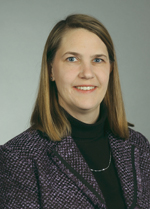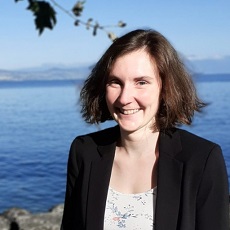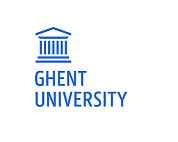Invited speakers
Satellite Symposium
In honour of Dominiek Sandra
Monday, 29th May, 14:10
- Lisan Broekhuis (University of Antwerp) Exploring the limits of language non-selectivity: How do multilinguals process non-native cognates and interlingual homographs in sentences?
- Sarah Bernolet (University of Antwerp) Dutch proficiency courses as a window on native language processing
- Astrid Geudens (Thomas More University of Applied Sciences) Reading instruction in primary education: what does really work?
- Emmanuel Keuleers (Tilburg University) Why transactions matter in thinking about the language environment
Keynote speakers

Steven Frisson (University of Birmingham)
Monday, 29th May, 17:00
You've already seen it: Parafoveal pre-processing in reading
Abstract:
One of the more surprising, and often overlooked, discoveries in reading research is the amount of processing that goes on before we fixate a word in a text. Even though readers tend to be unaware that they pre-process upcoming (parafoveal) words, silent reading slows down by 20-40% when parafoveal information is unavailable. The reliance on parafoveal information is also linked to reading skill, with younger readers and readers with reading difficulties extracting less information than skilled readers.
The most telling eye movement evidence for parafoveal processing comes from skipping, i.e. when a word does not receive a fixation, arguably because it has already been processed sufficiently in the parafovea such that lexical access has been achieved and a fixation is no longer necessary. Work by Drieghe and others has shown that words are skipped more often when they are short, high-frequent, and predictable. Other research, often using the gaze-contingent boundary paradigm, also supports the view that at least some, mainly low-level, information can be previewed. However, how much and which kind of information is extracted parafoveally remains highly contentious, which is also reflected in competing models of reading (serial vs. parallel). Moreover, establishing the time course of parafoveal processing from eye movement data alone is highly problematic.
I will first discuss research on parafoveal processing, focusing on alphabetic languages, and highlight some of the shortcomings inherent in current methodologies (such as the boundary change technique). I will then describe the findings from a novel methodology developed in our lab, combining magnetoencephalography (MEG) with eye-tracking and rapid invisible frequency tagging (RIFT), which simultaneously measures neuronal activity linked to attention and eye movements. These studies show that lexical (both frequency and semantic/pragmatic) information is extracted parafoveally, and that this happens much faster than previously assumed, which is difficult to accommodate in serial models such as E-Z Reader. Finally, I will present the outline of a new framework, a pipelining mechanism, which combines notions of both serial and parallel processing and is currently being developed to explain previewing during reading as well as visual exploration.

Shanley Allen (Technical University of Kaiserslautern)
Wednesday, 31st May, 13:50
Does heritage language maintenance in bilinguals affect nativelikeness in the majority language?
Abstract:
Heritage speakers are bilinguals who acquire both a family (heritage) language and a societal (majority) language in early childhood. Most research on their use of the majority language has focused on school-aged children in comparison with their monolingually-raised peers. However, much less is known about patterns of majority language use in adolescents and adults. In this talk, we ask whether bilinguals’ majority language shows non-canonical patterns as a result of cross-linguistic influence or language contact.
Data are taken from a large-scale project investigating majority English as produced by adolescent and adult heritage speakers of German, Greek, Russian and Turkish as well as English monolinguals in the USA – part of the Research Unit on Emerging Grammars in Language Contact Situations (RUEG). We examine the speakers’ patterns for concept lexicalization, clause types, subordination, and left dislocations. Surprisingly, we find little evidence of cross-linguistic influence from the heritage language to majority English, but in some cases find a non-canonical pattern across all groups of heritage speakers regardless of language background. In other words, by the time they grow up, heritage speakers look remarkably similar to monolingually-raised speakers in their use of English.
OpenScience Workshop

Charlotte Eben (Ghent University)
Wednesday, 31st May, 16:00
DIY: Open and reproducible Science
Abstract:
In this hands-on workshop, we will focus on one important aspect of the open science: pre-registration. There is a lot of knowledge floating around about pre-registration together with some misconceptions. To counteract these misconceptions, there will be a short introduction on pre-registration, registered reports and different possibilities of pre-registration. This will be followed by a practical part in which the participants will be asked to write their own pre-registration (so please bring your laptop). Eventually, we will discuss questions that come up in the process of writing a pre-registration to prepare you for your first real pre-registration.
